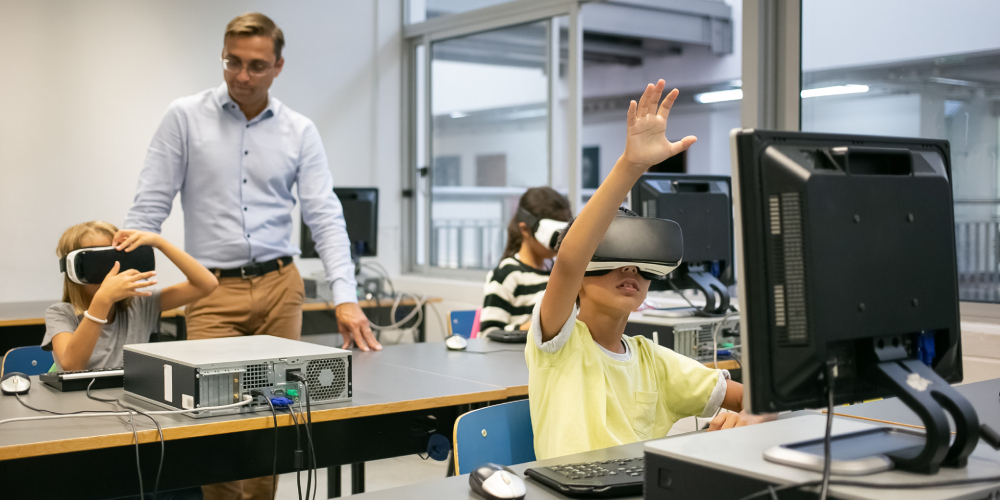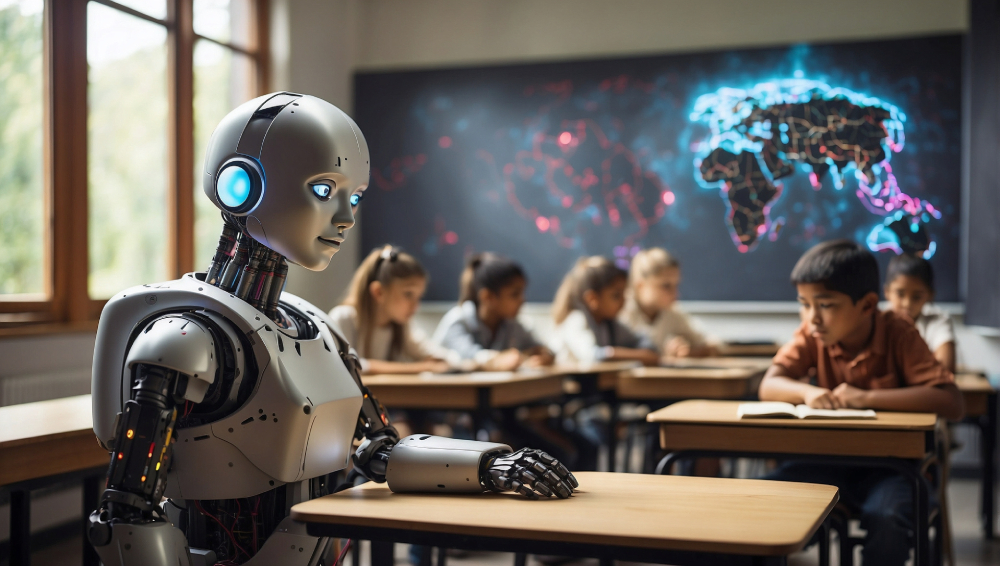Personalized Learning and Virtual Assistants
Introduction
The world of education is undergoing a significant transformation, thanks to the integration of artificial intelligence (AI). In recent years, AI technologies have reshaped how students learn, how teachers teach, and how institutions manage educational resources. At the heart of this transformation are two key innovations: personalized learning and virtual assistants. These AI-powered tools provide tailored learning experiences and enhanced support systems, making education more accessible and efficient.
In this article, we’ll explore the latest developments in AI-driven personalized learning and virtual assistants, examining their impact on modern education.
AI and Personalized Learning: Tailoring Education to the Individual
Personalized learning is an educational approach that adapts the learning process to meet the individual needs of each student. Traditional education models often follow a one-size-fits-all approach, where students progress at the same pace. However, with AI technology, this is no longer the case. AI allows for the creation of customized learning plans, giving students a unique pathway to success based on their strengths, weaknesses, and preferences.
How AI Powers Personalized Learning
AI uses machine learning algorithms and data analytics to understand how each student learns. By analyzing data on student behavior—such as quiz results, time spent on tasks, and engagement levels—AI systems can identify learning patterns. This information is used to offer tailored educational content, making learning more effective and enjoyable.
Benefits of Personalized Learning through AI
- Customized Learning Experiences
AI provides content that fits each student’s learning style, ensuring better comprehension and retention of information. - Self-Paced Learning
With AI, students can progress at their own pace, reducing stress and allowing deeper understanding of concepts. - Immediate Feedback
AI-driven platforms offer real-time feedback, helping students correct mistakes immediately and stay on track. - Improved Engagement
Students are more engaged when the material aligns with their interests and abilities, thanks to AI’s ability to personalize content.
Real-World Applications of AI-Powered Personalized Learning
Several AI-driven platforms are already enhancing personalized learning. For example, Knewton provides adaptive learning technologies that create individualized study plans. DreamBox is another platform that uses AI to adjust math lessons based on a student’s performance. These technologies are making learning more dynamic, engaging, and tailored to the needs of each learner.
Virtual Assistants in Education: Streamlining Learning Support
Virtual assistants powered by AI are becoming a staple in modern education. These intelligent systems assist students and teachers by providing instant answers, managing tasks, and even offering emotional support. Virtual assistants are designed to improve efficiency in classrooms, allowing educators to focus more on teaching and less on administrative duties.
What is an AI Virtual Assistant in Education?
An AI virtual assistant is a software program that interacts with students and teachers using natural language processing (NLP). These systems can answer questions, provide resources, and guide students through learning processes. They are often integrated into learning management systems (LMS) or standalone applications.
Top Benefits of Virtual Assistants in Education
- 24/7 Availability
AI virtual assistants are always accessible, offering round-the-clock support to students and educators. - Instant Responses
Students can ask questions and get immediate responses, reducing the need for constant teacher supervision. - Task Automation
Virtual assistants help automate administrative tasks such as grading, attendance, and scheduling, freeing up valuable time for teachers. - Enhanced Learning Support
AI assistants can guide students through challenging subjects by providing additional resources and step-by-step instructions.
Examples of AI Virtual Assistants in Education
Google’s AI-powered virtual assistant, integrated with Google Classroom, helps teachers manage assignments and monitor student progress. IBM Watson Tutor is another powerful AI assistant that helps students with personalized study sessions by analyzing their learning style and weaknesses.
AI’s Impact on Education: A Paradigm Shift
The integration of AI into education is not just about improving learning outcomes. It represents a paradigm shift in how we view education as a whole. AI technologies like personalized learning platforms and virtual assistants are democratizing education, making it accessible to students around the world, regardless of their location or socio-economic status.
Accessibility and Inclusion
AI tools are particularly beneficial for students with learning disabilities or those who require special education services. AI-powered learning platforms can tailor lessons to meet specific needs, such as adjusting reading levels or providing audio content for students with visual impairments. Additionally, AI virtual assistants can offer personalized help to students who may need extra guidance, ensuring no one is left behind.
Teacher Empowerment
While some fear that AI might replace teachers, the reality is quite different. AI tools are designed to enhance the teacher’s role, not replace it. By automating routine tasks and offering personalized learning support, AI frees up teachers to focus on more creative and interactive elements of teaching, such as project-based learning and critical thinking exercises.
Data-Driven Insights for Educators
AI not only benefits students but also provides educators with valuable insights into their teaching methods and student progress. AI-powered analytics can highlight which topics students struggle with the most, allowing teachers to adjust their approach and offer targeted support. This data-driven approach ensures that teaching is as effective as possible.
Challenges and Ethical Considerations of AI in Education
While AI offers significant benefits to education, there are also challenges and ethical considerations that need to be addressed.
Data Privacy Concerns
AI systems collect vast amounts of data on student performance, behavior, and preferences. This raises concerns about data privacy and how this information is used. Schools and tech companies must ensure that AI platforms comply with data protection laws like GDPR and COPPA, safeguarding student privacy.
Bias in AI Algorithms
Another concern is the potential for bias in AI algorithms. If AI systems are trained on biased data, they may perpetuate inequalities in education. For example, an AI system could favor students from certain socio-economic backgrounds or learning styles, leading to unequal access to resources.
Dependency on Technology
There’s also the risk of becoming overly dependent on AI technology. While AI tools are helpful, over-reliance on them could hinder the development of critical thinking and problem-solving skills in students. It’s essential to strike a balance between using AI and fostering independent learning.
Future Trends in AI for Education
The future of AI in education looks promising, with several trends on the horizon.
1. AI-Driven Emotional Learning
AI systems are being developed to detect and respond to students’ emotional states. These systems use facial recognition and sentiment analysis to gauge a student’s mood and adjust the learning environment accordingly.
2. AI-Powered Collaborative Learning
AI tools are evolving to support collaborative learning experiences. Virtual assistants may soon help students work together on group projects by managing tasks, tracking progress, and ensuring equal participation.
3. Lifelong Learning Platforms
AI will continue to drive the development of lifelong learning platforms. These systems will offer continuous learning opportunities tailored to an individual’s career path, ensuring that education extends beyond the classroom.
Conclusion
The integration of AI in education, particularly through personalized learning and virtual assistants, is revolutionizing how we teach and learn. These technologies provide students with tailored learning experiences and 24/7 support, making education more engaging and accessible. At the same time, they empower teachers with data-driven insights, allowing them to improve their teaching methods.
As AI continues to evolve, its impact on education will only grow, bringing new opportunities and challenges. By addressing ethical concerns and striking a balance between AI and traditional learning, we can ensure that these innovations benefit all students, regardless of their background or abilities.
For the latest updates on AI in education, follow myupdate.news and stay informed on the future of learning.






